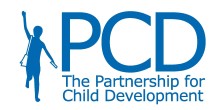 Policy
Policy  OVC Supported Activities
OVC Supported Activities
How the clubs work
Both Nigerian and Kenyan schools have a club membership of 100 pupils and the vocational training programme is currently supporting 1700 pupils. The clubs are managed at the school level by a committee made up of a head teacher, a 4K patron and a parent teacher association member, this committee as well as agricultural officers oversees the training of the children. At the club level, the 4K members elect their own officials, they hold regular meetings and are also trained on how to keep records of training, expenditures and incomes.
Teaching profitable practices
The OVCs programme teaches children new technologies in agriculture to promote intensive and profitable farming using minimal space and water. Club members are involved in the entire agricultural process – from seed to seed - namely all activities from land preparation, planting, harvesting, processing and sales.
Some of the crops planted include sweet potato, arrowroot, cowpeas and multi-storey vegetable gardens with kales and spinach, maize, beans, amaranth, onions and pumpkin. In Kenya, clubs are also involved in chicken and rabbit rearing, while clubs in Osun State, Nigeria keep fish and snails.
Since the beginning of this project, the club members have begun transfering these skills and technologies to their homes thus benefiting the community at large. Commodities produced through the clubs are then sold to the schools to complement the schools' lunches, and are sold to fellow pupils, parents, teachers and the community. All the profits made by the sales are then delivered back to the club to sustain its projects.
Community involvement
To enhance the programme's effectiveness, sensitization workshops have been held with community stakeholders (including parents and school and club members) focused on assessing the needs of each school, helping prepare school gardens, and sensitizing members about the functions of the club and what their role is in helping the programme to remain successful and sustainable.
Beyond agriculture - life skills education
In addition to teaching about agriculture and agribusiness, the clubs are engaged in various activities and skills training such as baking cakes, making jams, and taking part in arts and crafts. They are also involved in life skills education sessions on topics such as the prevention of HIV/AIDS, first aid, good hygiene and nutrition practices and environmental conservation activities.
Clubs awarded in Kenya
In 2014, the members of the 4K clubs in Kenya had the privilege of attending their County Agricultural Shows where they displayed their work and educated other visiting schools on their products and the club. The Partnership for Child Development (PCD) sponsored clubs walked away with certificates of excellence for products such as liquid soap, preserved vegetables, paw-paw jams and sweet-potato tubers.
Inclusive education schools
Three of the nine programme schools in Osun State, Nigeria are inclusive education schools, adapting their education and facilities to children with disabilities. "The School for the Handicapped" in Osogbo, stands out as a model school in terms of project coordination and pupil participation. One pupil with a hearing and visual impairment outlined his daily activities, "I wake up early to feed the chickens. I make sure they are kept warm and I check on them in the evening."
Monitoring the Programme
To assess how the programme is progressing and to make any adaptations necessary, both PCD and Ministries of Agriculture and Education have been conducting field monitoring visits to the schools.
The programme is also designed as a longitudinal research study comprising a baseline survey, programmatic vocational training, and an impact evaluation survey. This study will also monitor and measure the extent to which the programme is making an impact on the lives of the 4K members. To date, processing and analysis of data collected for the baseline survey is currently ongoing. This data was taken from all the schools, and was made up of 1200 club members and students and 600 parent interviews.




